My Valentine to Some Favorite Novels and Authors
And more on The Queen’s Musician. Some of you have been kind enough to ask.
Here at Historical Magic, I write about the allure and challenge of writing historical fiction. I also “review” my favorite books. Over the past eighteen months, I’ve spotlighted some utterly dazzling historical novels, along with others that are just good reads. And let’s delete the “just” in that sentence right now. In a world of distractions and shorter attention spans, a “good read” is a blessed offering. I’m in awe of any author who can take me to another place and keep me turning the pages.
So, in the spirit of spreading the love, I’m indulging in something of a retrospective. Here’s a quick tour of some historical novels I’ve admired, enjoyed, and completely fallen in love with.
Category 1: Books that explain history you need to know more about
One of historical fiction’s most powerful assets is its ability to pull us into the past in ways that shed light on the present. Some of the genre’s best works are cautionary tales: These novels push us to remember and reflect on humankind’s capacity for cruelty, stupidity, and deception. They also remind us that people can overcome and do better. This is a message many of us are craving these days. Here are some superb examples:
Robert Harris, An Officer and a Spy. Harris dramatizes the Dreyfus Affair, one of history’s most notorious “big lies.” Ambitious men promoted the unjust conviction of Jewish soldier—his “guilt” was the party line. Only a handful fought back.
C. J Sansom, Tombland. Sansom poignantly depicts the idealism behind Tudor England’s Kett’s Rebellion in 1549. Thousands revolted against a ravenous, law-breaking aristocracy before the crown murderously suppressed the uprising.
Mutt-Lon, The Blunder. The novel’s subject is a virtually unknown medical malpractice catastrophe in colonial Africa. The author shrewdly—and sometimes humorously—exposes the European blindness and bias that propelled it.
Category 2: Books where you learn about spellbinding historical figures
Fictional biographies invite readers into the inner lives of history’s most remarkable people. They flesh out the static facts we learned in school. In this category, I’ve loved Stephanie Cowell’s immersive and impeccable portraits of Claude Monet (Claude & Camille) and the young William Shakespeare (The Players).
For anyone who shares my passion for the Tudors, Philippa Gregory and Elizabeth Fremantle have written absorbing fictional bios of Katherine Parr, Henry VIII’s last and surviving queen. Both are more convincing than the recent Hollywood movie, Firebrand, which is gripping and well-acted but veers far afield from history.
I’m now reading Paul Theroux’s Burma Sahib about George Orwell’s time as a colonial policeman. Orwell was just out of Eaton and still known as Eric Blair. The novel follows his gradual recognition of colonialism’s tyranny and racism and the first inklings of his desire to be an author. More on Burma Sahib to come.
Category 3: Books that let you justify your passion for detective novels by sneaking in some riveting historical detail
Since I like detective stories nearly as much as historical fiction, I’ve recommended mystery series set in ancient Rome (A.J. Bell, Jr.), Tudor England (C.J. Sansom), Restoration London (Andrew Taylor), and India during the Raj (Abir Mukherjee). These books are satisfying and well-crafted. They offer evocative descriptions of these different eras and tell good stories on top of it..
The Common Denominator
All of these books share one trait—their authors seamlessly reeled me into a different world. The Booker Prizes has a crisp definition of this phenomenon (and I do tend to enjoy Booker Prize winners): “Remember the last time you got completely lost in a book? That moment when the world around you fades, and all that matters is what’s waiting on the next page. It’s one of life’s greatest pleasures.” Yes indeed. And when it happens to me, I like to write about it.
Why All My Reviews Are Positive
Early on, I decided not to publish negative reviews. Unlike most professional critics, I am completely free to choose any book that piques my interest. None are assigned to me. Old or new, it doesn’t matter. There’s no “backlist” oblivion here. And, with so many amazing books out there, I see no point in using my time to beat up on the ones I dislike.
First off, I usually haven’t finished them. I follow a 50-page rule, and if a novel hasn’t captured me by then, I drop it and move on. Second, I sometimes loathe books others rave about. I won’t name names, but in the last year, I’ve abandoned books that appeared on multiple “top ten” lists and won prestigious prizes. They have some admirable qualities—I can see that—but omigosh, M-E-G-O (my eyes glaze over). Yet, who am I to bash them? My goal—and my joy—is recommending what I love.
Of course I do sometimes share my views in private. In fact, one of life’s great bonding experiences is discovering that you and your conversational partner both hate the same book—the one the critics fawned over. It’s quite an enjoyable moment.
Now, it’s your turn. Which authors and novels would get your valentine?
For Those Who’ve Asked—An Update and Special Offer
When I launched Historical Magic, I resolved to ration discussion of my own novel which comes out on May 27. I adore writing about historical fiction. I’m much less comfortable writing about me. But since some of you have asked, I’m including this update:
Here’s what my book is about—straight from the back cover:
A glamorous queen, a volatile king, a gifted musician concealing a forbidden romance. Everyone knows Anne Boleyn’s story. No one knows Mark Smeaton’s.
Some early reviews:
“Original and worthwhile . . . A thoughtful, dramatically gripping work of historical fiction.”— KIRKUS REVIEWS
“In one of the most savage moments in history . . . a heartfelt and thoughtful tale of the fragility of love. Very highly recommended.”— FIVE STARS FROM READERS’ FAVORITE
A few blurbs—I’m so proud to have them
“In the terrifying free fall of Queen Anne Boleyn . . . innocent men will be condemned. . . . Beautifully written and impossible to put down. I had tears in my eyes.” —STEPHANIE COWELL, American Book Award winner, author of The Boy in the Rain and Claude & Camille
"A captivating and deeply moving retelling of Anne Boleyn’s dramatic fall . . . This beautifully written novel brings history to life with such emotional depth that it brought me to tears."—CLAIRE RIDGWAY, author of The Fall of Anne Boleyn: A Countdown
My website includes more reactions to the book, more on the historical background, book club questions, etc.
AND here’s an enticing “early bird” offer from Barnes & Noble—good through February 7 only
May 27 is a ways away, as my mom used to say, but you can pre-order The Queen’s Musician from all major bookselling sites. Pre-orders help novels (and unknown novelists) get off to a good start, and if you’re ready to move ahead, Barnes & Noble has this lovely discount, but it ends on February 7.





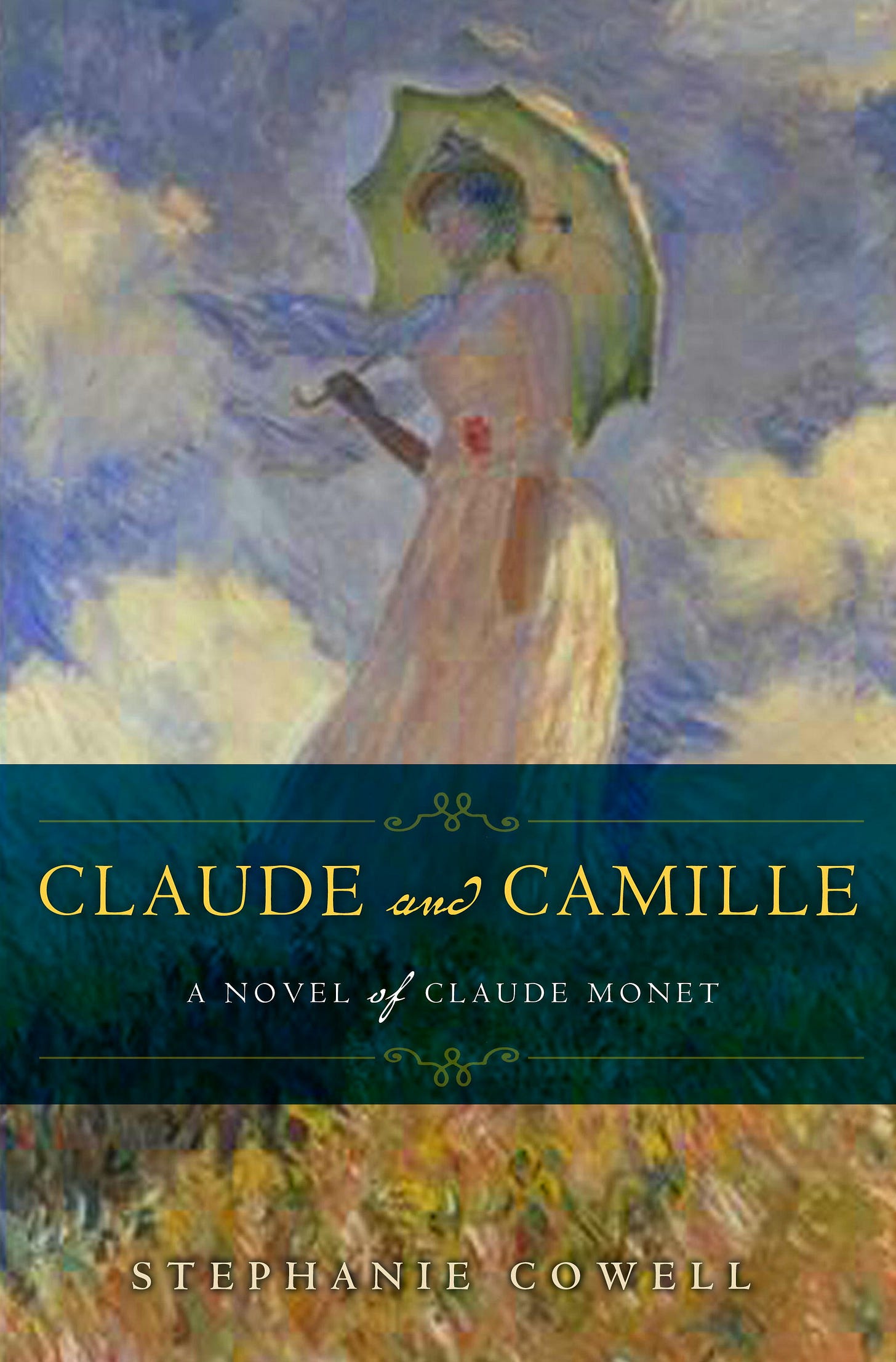
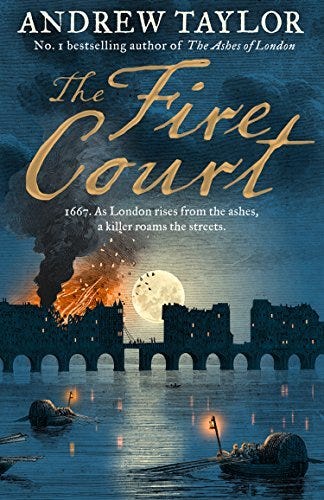
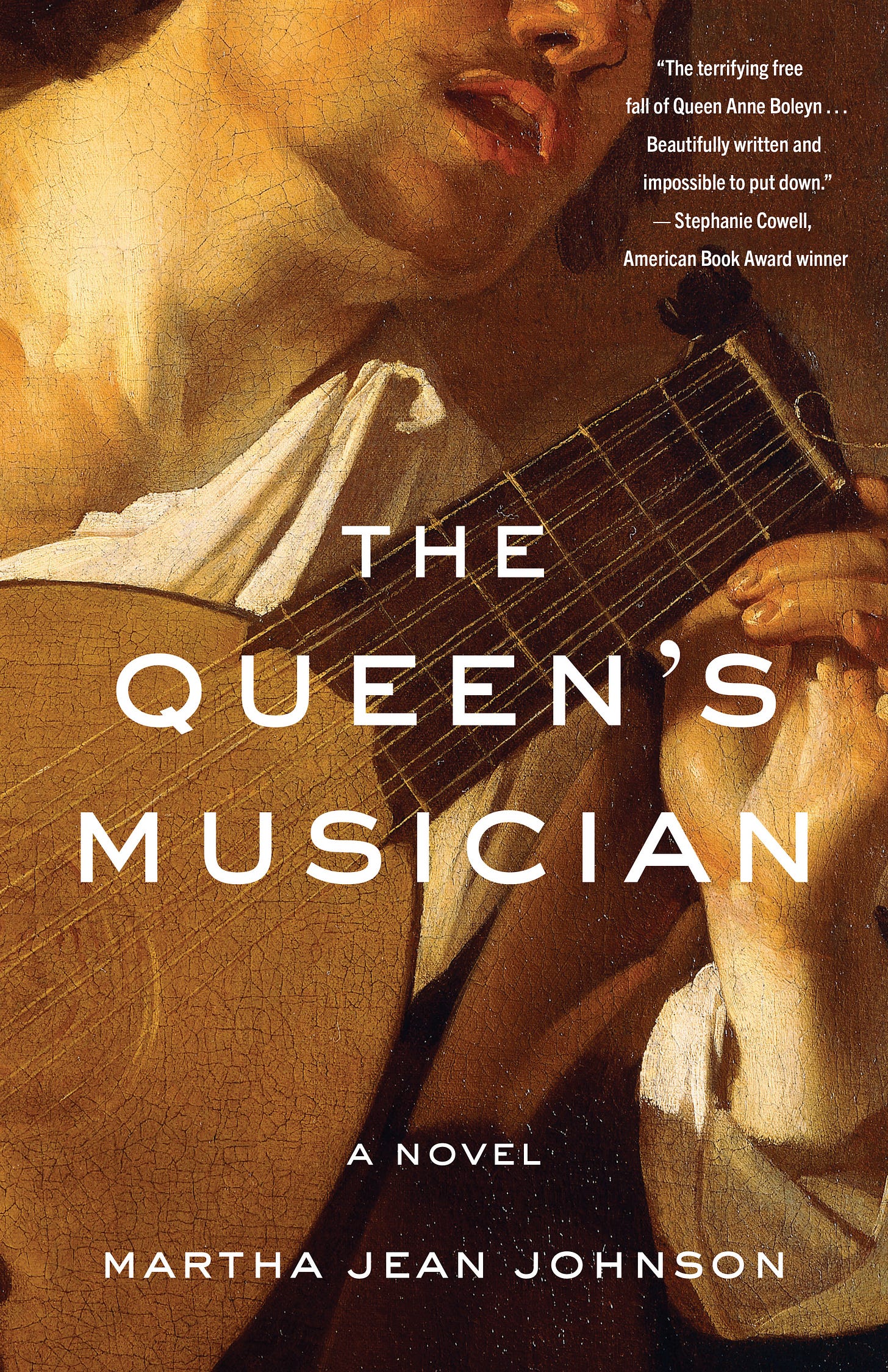
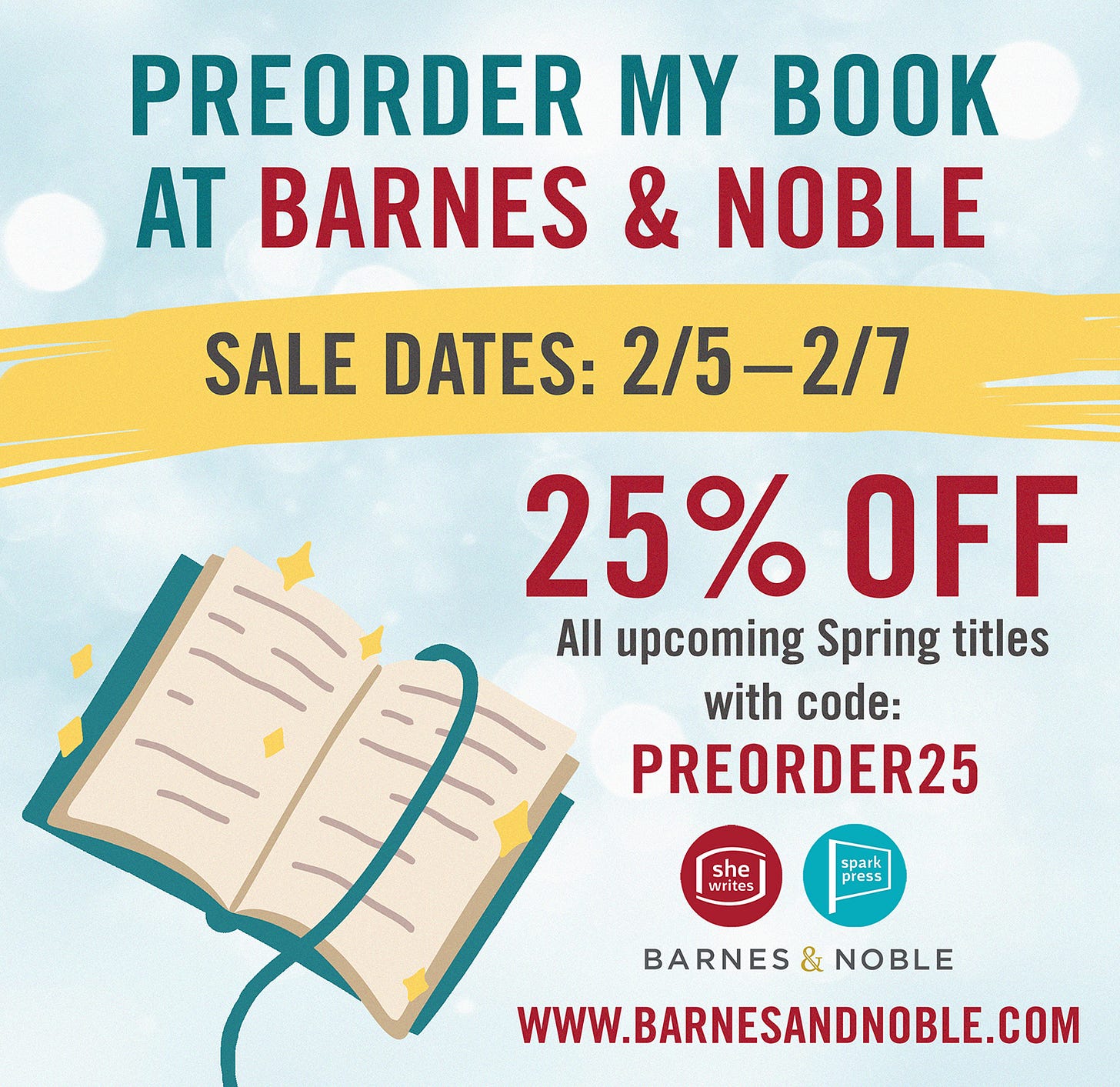
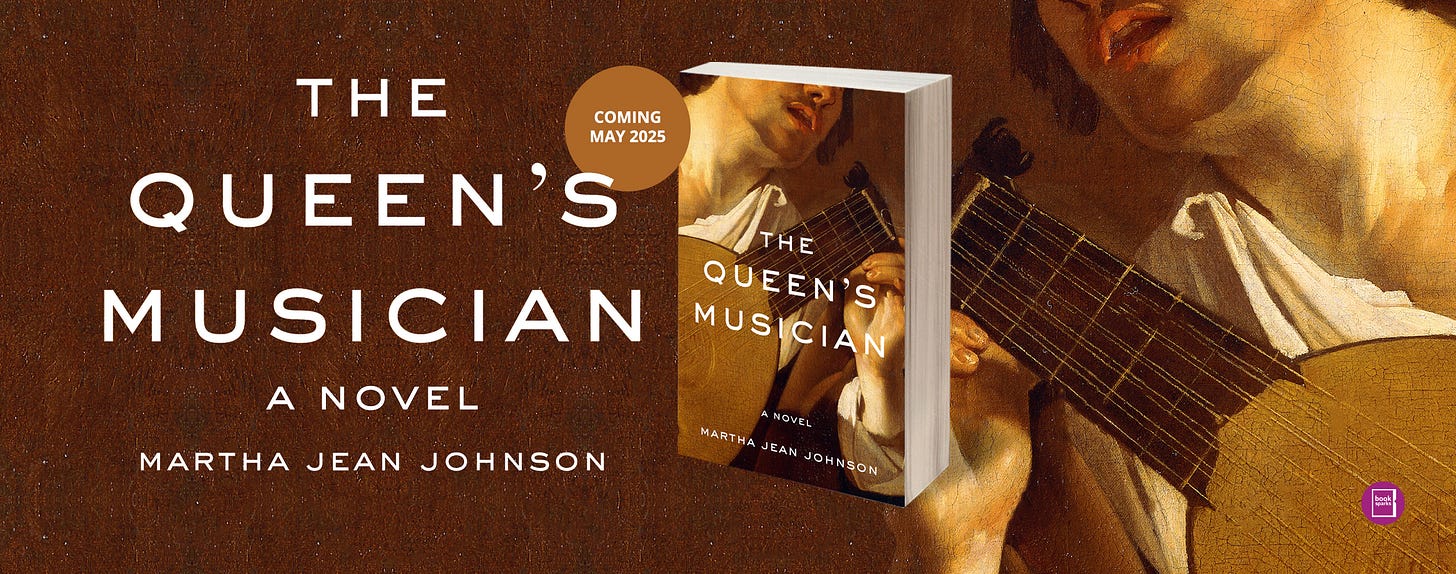
OMG! I’m publishing a children’s book this year with an orange striped cat! Title is The Land of Purrr. Huge congratulations on your debut book. One of many to follow!!
I ordered your book today. I'm really excited to read it (in a few months). I know you posed a question to your readers at the end of this writing, but instead of responding to that question, I want to say that the Booker Prize phenomenon you describe reminds me much of what I think Mihaly Csikszentmihalyi meant by "flow". From Wikipedia: "In his seminal work, Flow: The Psychology of Optimal Experience, Csíkszentmihályi outlined his theory that people are happiest when they are in a state of flow—a state of concentration or complete absorption with the activity at hand and the situation.[16] It is a state in which people are so involved in an activity that nothing else seems to matter.[16] The flow state is colloquially known as being in the zone or in the groove.[17] It is an optimal state of intrinsic motivation, where the person is fully immersed in what they are doing.[17] This is a feeling everyone has at times, characterized by a feeling of great absorption, engagement, fulfillment, and skill—and during which temporal concerns (time, food, ego-self, etc.) are typically ignored.[17]
In an interview with Wired magazine, Csíkszentmihályi described flow as "being completely involved in an activity for its own sake. The ego falls away. Time flies. Every action, movement, and thought follows inevitably from the previous one, like playing jazz. Your whole being is involved, and you're using your skills to the utmost."[18]
So I will sum this up by saying I am counting on your book being one of my valentines and putting me in a state of flow.